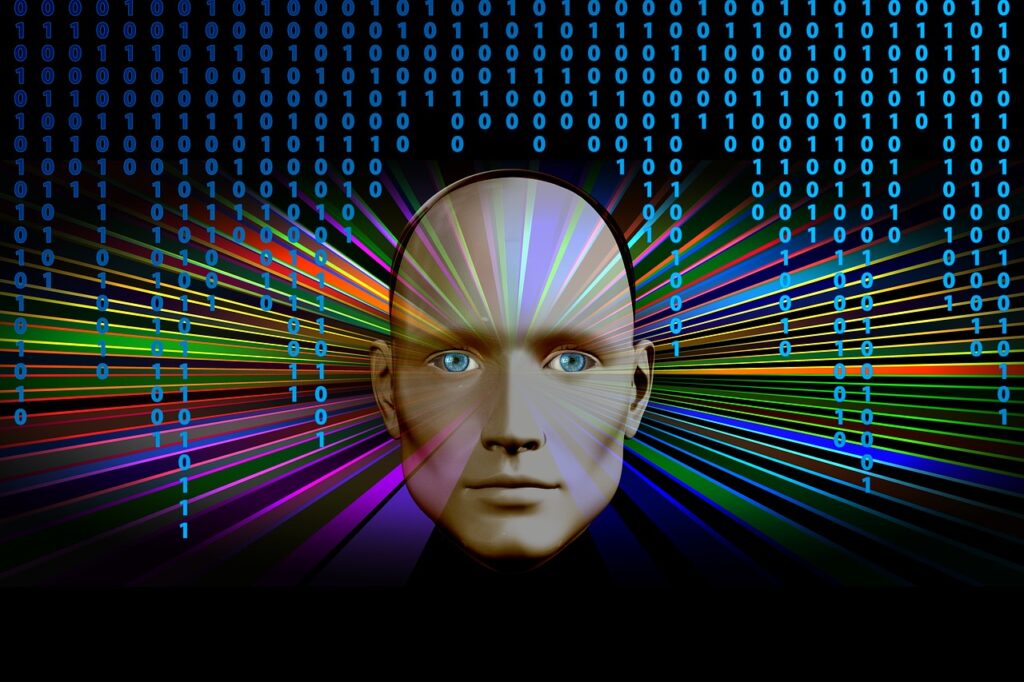Artificial Intelligence, Robotics, Digitalisation – despite all the success stories it has written, the digital revolution is often also linked with the fear of people that it will eventually cost them their jobs. How realistic are these fears and how do individuals and companies need to face the digital transformation of the workforce?
Men-killing machines
Cyborgs that hunt and eradicate humans, board computers of space ships that kill the crew, or an Artificial Intelligence that enslaves the human race – Terminator, 2001: A Space Odyssey or The Matrix are just three examples of a long list of movies about the dangers of AI. When we speak about Artificial Intelligence, we regularly are reminded of the science fiction stories that warn us about the rise of AI and its unintended consequences. Such scenarios – if ever realistic – at least seem very distant. Other negative impacts of the rise of the machines, however, are more concrete: the threat to today’s jobs through digitalisation, through automation, innovation and smart robots that will take our place and make us redundant.
The History Technological Evolution
Are these fears justified though? Historically, innovation has always been considered (in addition to its more positive effects) a threat to the status quo of employment: machines were always blamed for resulting in massive job losses from the beginnings of the age of industrialisation to the ascent of computers – every stage of innovation was also connected with the risk of unemployment for large parts of a society. History, however, has also taught us that innovation has resulted less in an overall loss of jobs, i.e. the final result of detracting lost positions while adding new jobs created because of new technologies. For example, the introduction of trams or cable cars has eliminated to a large extent the need for coachmen of horse carriages but has created the “new” position of the conductor of these new machines. The story repeats itself at every stage of technological evolution and chances are that the same holds true for digitalisation: through the use of robotics companies could become more competitive. An increase in productivity seldomly leads to job losses though it will likely require the work force to adapt to new roles.
The Future of Compliance Jobs
To apply this to the question of financial services regulation, we wrote more than two years ago about the Future of Compliance Jobsand the dire prospects for an entire profession. Back then the word was that thousands of Compliance jobs were at risk because of automated compliance systems using artificial intelligence. RegTech was a relatively new phenomenon, but it was praised as the solution to the question about what financial institutions could do about the enormous number of staff they were employing as a response to the financial crisis and the flood of new regulations, and which was weighing heavily on the cost of doing business.
More complexity = good or bad?
For both the example of compliance jobs as well as the impact on the overall workforce the result is that jobs are likely to become more complexas was the case in previous stages of technological evolution.
In our article in early 2017, we predicted that RegTech would other than the loss of (less complex) jobs, also have the positive effect of helping compliance officers focus on more important aspects of their role whilst routine tasks would be covered by automated systems. We also anticipated that RegTech would not make the Compliance profession redundant, but would force it to undergo a profound transformation. For instance, we still believe that a technological understanding to build the bridge between RegTech and the specifics of an institution will be in high demand, but equally will be specialisations in terms of knowledge of specific fields of regulation.
Equally in the general discussion about the impact of digitalisation, supporters of the view that AI will actually improve the workforce believe that the tasks to perform will become less monotonous and more interesting. Critics, on the other hand point out, that the world has already become incredibly complex and more complex jobs would simply further overwhelm people even more.
How to prepare?
Regardless whether we share the view we cannot deny the need to prepare for such a possibility. Individuals and organisations alike need to address this digital transformation. Individuals in order to increase their prospects in the job markets of the future; organisations to take advantage of new business processes and models without losing the engagement of their staff. After all, change is in most cases perceived as negative and in order to avoid this, companies ought to involve employees in these processes, inform them regularly and comprehensively, make them part of the change rather than to deploy these measures from the top.


